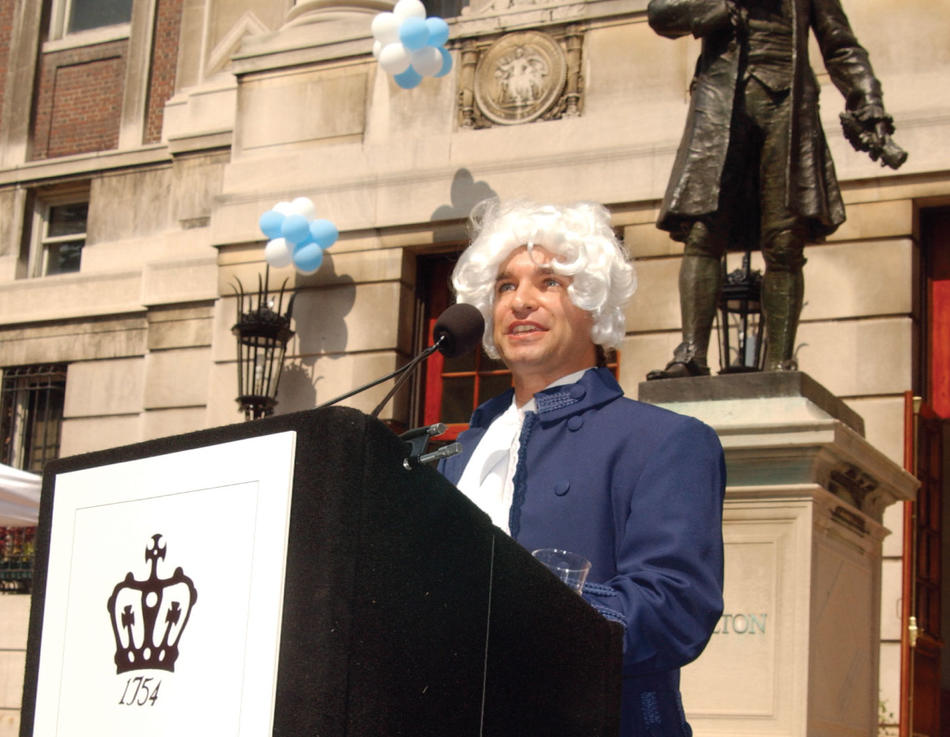As a first-year student at King's College in 1774, Alexander Hamilton published essays espousing the revolutionary cause that were so eloquent statesmen frequently misattributed them to John Jay, a King's College alumnus and statesman ten years Hamilton's senior.
Hamilton, who coauthored the Federalist Papers at age 32, wouldn't be the last shockingly precocious student to attend this institution. "We must always remember that any mind can make a contribution to society, no matter how young," said Lee C. Bollinger, announcing the Columbia Campaign for Undergraduate Education at Hamilton Hall on September 8. "And just as parents can't live healthy and rewarding lives if they haven't nurtured their own children, faculty at Columbia can't live healthy and productive lives as scholars and as teachers if we neglect those who are youngest among us."
The Campaign for Undergraduate Education, benefiting Columbia College and the School of General Studies, aims to raise $865 million for undergraduate students and the faculty who teach them. It accounts for nearly one-quarter of the $4 billion university-wide campaign announced last year; nearly $2.4 billion already has been raised toward that goal.
Specifically, it sets a $400 million goal for financial-aid endowment at Columbia College, which will help secure the College's need-blind admissions policy. It aims to increase by 10 percent the number of faculty in departments who teach undergraduates, in part by endowing 50 new chairs in the arts and sciences departments. In addition, the campaign goals include $15 million for financial-aid endowment at General Studies and $85 million for the Columbia College Fund, which is a major source of unrestricted support for scholarships, student activities, housing, and renovations.
"The single biggest goal of the campaign is to preserve the inclusive character [of Columbia] by building endowment for student financial aid," Nicholas Dirks, vice president for arts and sciences and the dean of its faculty, and Austin Quigley, dean of Columbia College, wrote in a letter announcing the campaign to alumni. "All admitted students deserve full access to the Columbia educational experience and to a full range of career choices, unimpeded by a heavy burden of debt."
The University, in an effort to minimize college debt for those with the least ability to pay, last fall initiated a policy by which grants, rather than loans, are issued to Columbia College and to engineering undergraduates whose families earn less than $50,000 a year. A successful undergraduate campaign also will mean more sections of the College's Core Curriculum will be taught by full-time faculty and the University will hire more academic advisers and career counselors, offer students more paid internships, research opportunities, and study-abroad options, give more financial aid to international students in the College, and renovate undergraduate dining facilities. As part of the campaign, the University also is reaching out to alumni interested in mentoring and helping students network.



